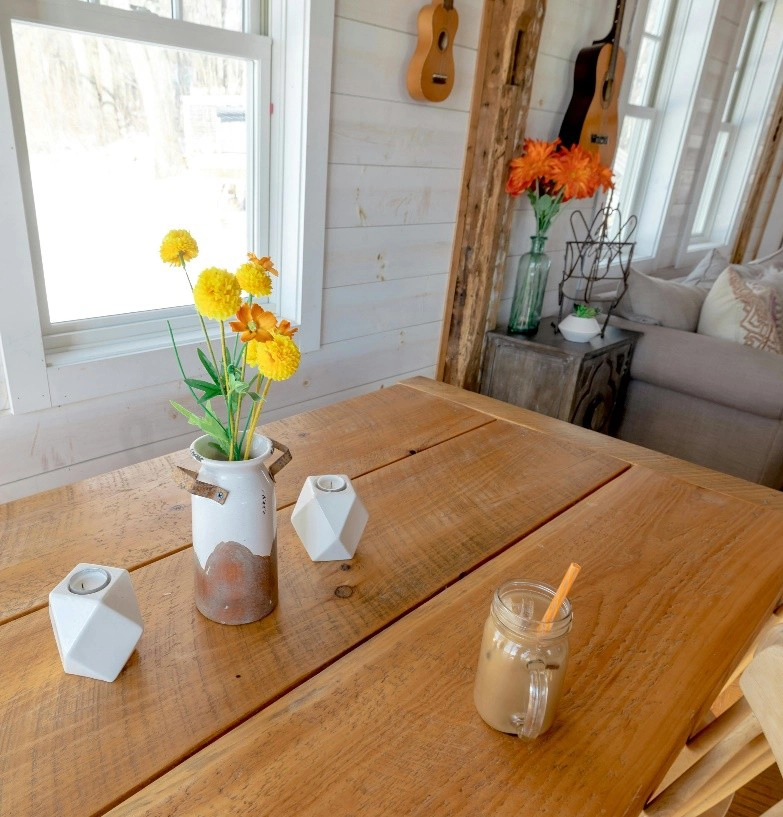
Too many homes sit empty in towns where working people need them. In a housing affordability crisis, this has to change. In Vermont, a local nonprofit is stepping up.
Local Deeds is an initiative that helps people make down payments on homes. Specifically, working people. A deed restriction ensures that someone in the home has a job within 16 miles of Woodstock, Vermont.
The Woodstock Community Trust opened the program for takers this time last year. There is no income minimum. So far, the Trust is helping more people than its leaders expected.
From Hostel to Home
One happy taker was staying in a hostel. He followed that by moving to a hotel room to get closer to work at the Woodstock Farmers’ Market.
He had divorced and moved to Vermont in 2023, looking for a new start. The farmer’s market job was great, and he was in his happy place: Woodstock. There was just one problem. He just couldn’t find the right housing for a solo resident.
Last January, he learned about Local Deeds. A new door had opened. Delighted to experience Local Deeds’ helpful, user-friendly process, he gladly accepted the deed restriction. And he got just the boost he needed to handle a condo down payment.
Davies, with a local agent, guided the new resident through the tasks of finding a real estate lawyer and a local bank. When their work was done in March of last year, the new resident had purchased a condo atop a former ski lodge for under $200K. The financial boost from the Trust amounted to about $30K.
“I don’t make a lot, but I’ve received, and I want to give back,” says the happy deed holder. “It’s just the beginning of the snowball rolling.” Wow! More of this, please.
From Renters to Deed Holders

A family of four (a teacher, a medical nonprofit employee, and their kids) had been living in Woodstock village for seven years. Then their landlord decided to sell the condo. Fortunately, the renters were offered a first-refusal to buy option.
They got down payment assistance from Local Deeds.
Their now-owned condo unit is part of a duplex. A social worker and mother of two were living as renters in the building’s other half. Hearing the duplex would be sold, the working mother assumed that she would have to move, with her kids, out of the only town they’d known, far away from their beloved neighbors.
“I never thought I would own a house in my entire life,” she said to Anne Wallace Allen of the independent media outlet Seven Days. An understandable feeling, and well informed. The median sale price residents pay to buy into the Woodstock area has shot beyond half a million dollars.
But last year, the second family got its own path to becoming deed holders for their condo unit. Local Deeds provided them with the lump-sum funding that’s available for working people in Woodstock and its nearby towns: Plymouth, Pomfret, Bridgewater, Hartland, Barnard, and Reading.
Today, the families on both sides of the duplex are happy condo owners. And the Town of Woodstock’s school system has been able to keep multiple teachers in town. The Local Deeds project is doing good deeds, indeed!
One Good Deed Leads to Another
Jill Davies had already facilitated a pilot program, tapping $60,000 from the Woodstock’s 1% option tax to pay Woodstock landlords who agree to convert their unused vacation digs into rentals for locals. Now, Local Deeds is clearing a path for working people to actually buy area homes. Luckily, it did not have to invent this wheel. The Woodstock Community Trust received materials, advice, and support from administrators of successful programs in Vail, Colorado, and Big Sky, Montana.
We’ve talked about the Vail InDEED deed-restriction initiative, now entering its seventh year of assisting working people in Vail, Colorado. Vail InDEED keeps desirable real estate from being taken for vacation homes that sit empty. Deed restrictions get more deeds in the hands of owner-occupants. Not just now, but for future receivers of these deeds.
Woodstock is a lot like Vail, as it’s a popular draw for investor-owners or people who want holiday homes in a touristy town. In fact, Vermont as a whole is a lot like Vail. People flock to Dorset and Stowe, as well as to Woodstock, for vacation time. These second-home owners hold the deeds to around a quarter of Vermont’s homes, according to the state housing finance authority’s figures.
At the same time, Vermont residents care about the proliferation of homes that remain dark for long spans. Many would prefer to sell to year-round residents. Can they pull money and resources together to do it? Now, they have an example to follow, set by Local Deeds.
The model is already having influence in Newport, Vermont. The town leaders are hammering out a housing plan to sustain working residents over the long term. They’re watching the success of Local Deeds while they hash out the plan. But can they pull it off? After all, Woodstock has some financial advantages. The Woodstock Community Trust is well funded by grants, allied nonprofits, and by local homeowners as well. Locals want to help, because Local Deeds helps locals. As the Trust explains:
When those who work here can’t affordably live here, they may choose to leave, and the dynamism and quality of life of the community and its residents decline.
With the power of people who have ready resources, Local Deeds can help transfer the deeds to a half-dozen hopeful buyers of Woodstock at a given time. Newport doesn’t have the well-heeled donors that Woodstock can tap. But it could seek public funding, and develop fundraising campaigns.
Still a Long Way to Go
Vermont, like so many states right now, has an obvious housing shortage. According to figures that came out last year from the state, Vermont could need to make up to 36,000 homes available over the coming five years.
But the Trust is making a dent. It has been able to fund 17 housing units, home to dozens of local workers, plus their families. Through Local Deeds, these new homeowners have collectively received close to a million dollars to put into their purchases. This enables restaurant and bar employees, police officers, shop workers, artists and others to remain in and around Woodstock, affordably. Eligible applicants must work an average of 25+ hours a week. New applications are now being accepted!
Supporting References
Anne Wallace Allen for Seven Days – Vermont via SevenDaysVT.com: Housing Crisis – Woodstock’s Worker Housing Program Finds Many Takers (Oct. 9, 2024; first printed as “Home Run – A Program That Helps Local Workers Buy Houses in Woodstock Is a Hit”).
John Hawks for WPTZ-TV NBC News 5 (Burlington, Vermont): Woodstock to Pay Property Owners for Workforce Rentals (May 15, 2024).
Woodstock Community Trust of Vermont: Local Deeds- Creating Housing for Local Workers. See also Dechen – Creating a New Life in the Upper Valley (PDF).
And as linked.
More on topics: Affordable housing through land trusts, Land banks
Photo credits: RDNE Stock Project and Andrea Davis, via Pexels/Canva.
